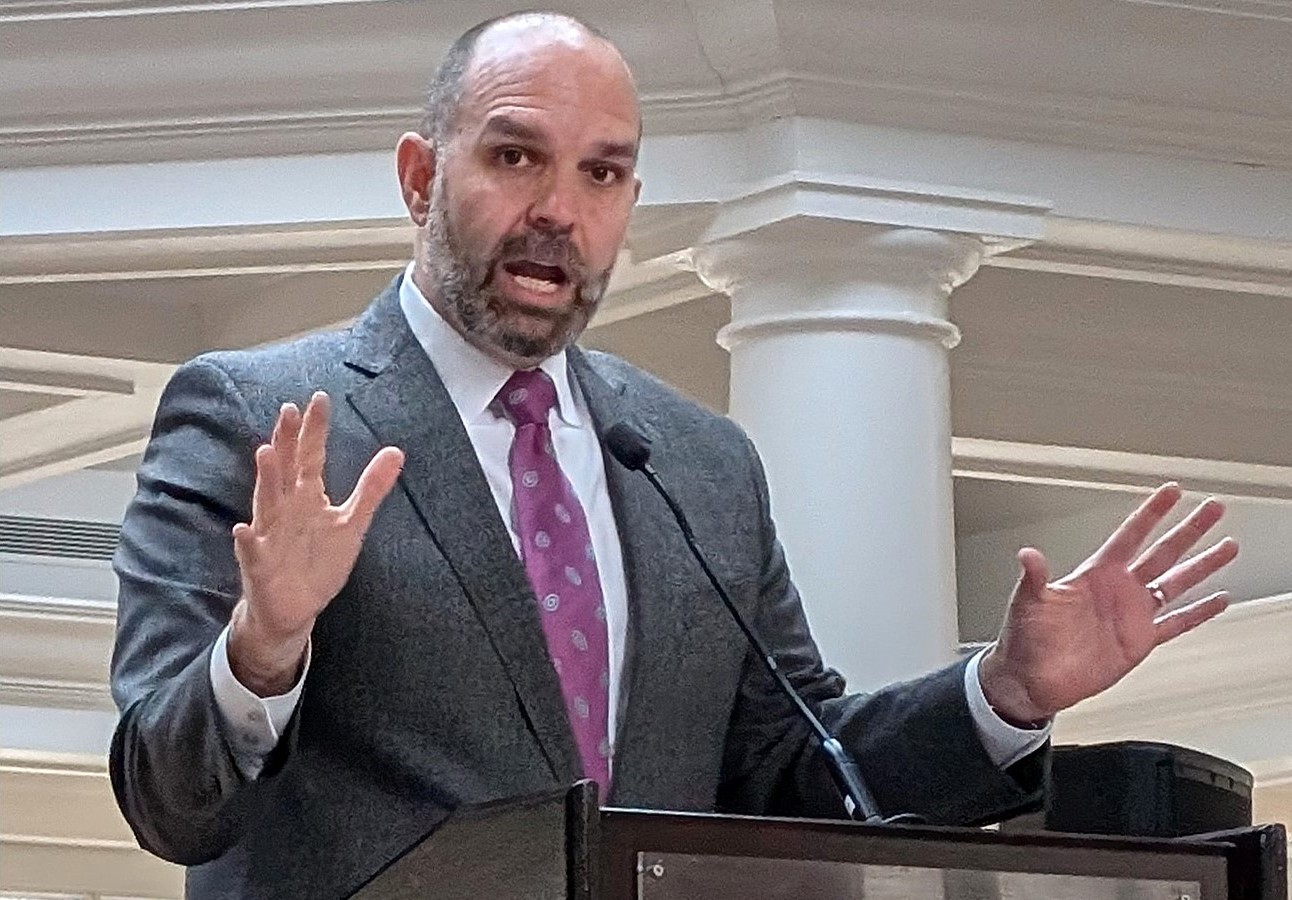NAB: Broadcasters' First Amendment Freedoms Must Be Respected
“Broadcasters must be able to make decisions about the content on our airwaves free from government influence,” NAB’s LeGeyt wrote. “The First Amendment affords our stations — and all Americans — this fundamental right.”

WASHINGTON—In response to the controversy over the suspension of Jimmy Kimmel’s late night talk show, the NAB’s president and CEO Curtis LeGeyt has posted a blog that strongly defends the First Amendment rights of local broadcasters.
“The controversy surrounding Jimmy Kimmel Live! has sparked understandable questions about broadcasters’ First Amendment rights and the influence of those in power,” he wrote. “This is an unprecedented time in media history and moments like this demand a direct conversation about what is at stake.”
Following remarks by Kimmel about the assassination of Charlie Kirk that FCC Chair Brendan Carr deemed "sick", both Carr and President Donald Trump issued statements threatening the broadcast licenses of stations carrying the show.
ABC decided to put the show on indefinite suspension following announcements by both Nexstar and Sinclair that their stations would not air the program.
That controversy greatly heated up an ongoing debate over regulation of broadcast news content. Carr and Trump have both repeatedly argued that the FCC has the right to yank licenses of stations who violate their public service rules of offering balanced news. Critics, such as FCC chair Anna Gomez, have argued this violates longstanding policy and First Amendment rights.
In his post, LeGeyt wrote “Let me first state affirmatively that broadcasters must be able to make decisions about the content on our airwaves free from government influence. The First Amendment affords our stations — and all Americans — this fundamental right, and the mere perception that broadcasters acted because of undue pressure is a problem for our credibility and the trust we have built with our audiences.”
In asserting this right, LeGeyt did not directly name the Trump administration or comment specifically on the decision to preempt the Jimmy Kimmel show.
The professional video industry's #1 source for news, trends and product and tech information. Sign up below.
Noting that the problem has come from “both political parties”, he specifically offered examples from Democrats attempting to restrict First Amendment Rights.
“During the Obama administration, journalists decried the use of the Espionage Act to investigate reporters and demand their confidential sources. Under the Biden administration, reporters faced growing barriers to access, and local affiliate stations were targeted based on the actions of cable news networks. Today, we continue to see veiled threats suggesting broadcasters should be penalized for airing content that is contrary to a particular point of view. These attempts were wrong then, and they are wrong now.”
“The First Amendment makes clear that broadcasters — not the government — bear the responsibility for editorial decisions,” he argued. “Local radio and television stations take this obligation seriously, working every day to reflect the unique and diverse needs of our communities, especially on sensitive issues. This is what makes local stations the most trusted sources of information. Ultimately, broadcasters are accountable to the viewers and listeners we serve.”
In defending broadcasters First Amendment rights, LeGeyt also took the opportunity to once again highlight the importance of local news and to push for the elimination of ownership caps on broadcast station groups as a way of strengthening the economics of local TV news.
“Beyond the obvious constitutional issues that have been raised, there is another challenge: Broadcasters are already fighting for our future, facing extraordinary disruption in the media ecosystem from Big Tech,” he said. “If the very act of owning or transferring a broadcast license carries the risk of political interference, it will drive investment further away from local stations at the very moment we need more resources to sustain local journalism.
“Make no mistake, NAB is fighting every day in Washington to ensure broadcasters have the scale to compete with national and global behemoths, to invest in newsrooms and local programming, to innovate and deliver freely available content to every American — whether on a television, radio, smartphone or car dashboard,” he concluded. “But all of that is futile if we cannot fulfill our most sacred responsibility: reporting to our communities without fear of government retribution. That is why this week’s celebration of First Amendment Day is not just symbolic. It is a reminder that the ability of local broadcasters to speak without fear of intimidation or interference is essential for the health of our democracy. NAB will continue to defend that freedom — publicly when necessary, and privately when most effective.”
George Winslow is the senior content producer for TV Tech. He has written about the television, media and technology industries for nearly 30 years for such publications as Broadcasting & Cable, Multichannel News and TV Tech. Over the years, he has edited a number of magazines, including Multichannel News International and World Screen, and moderated panels at such major industry events as NAB and MIP TV. He has published two books and dozens of encyclopedia articles on such subjects as the media, New York City history and economics.

